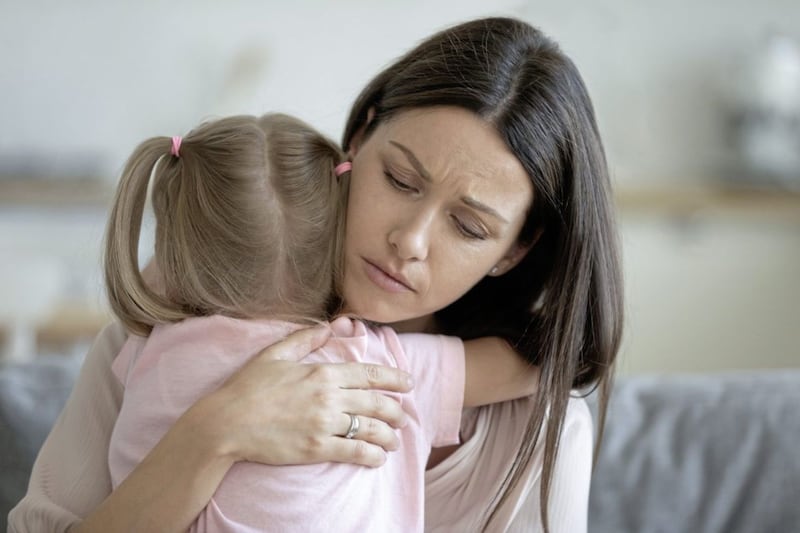CHILDHOOD should be carefree and full of fun – but sadly that’s not always the case for modern kids, who can struggle with emotional issues they don’t have the experience to deal with.
The difficulties today’s children can encounter are tackled in a new book, Happy, Healthy Minds written by The School of Life (theschooloflife.com), a global team of writers, philosophers, psychologists and psychotherapists that helps people lead more fulfilled lives.
“Those of us with children can sometimes find ourselves looking upon their lives with envy,” observes School of Life writer Rory Platt. “Yet in reality, there’s much less to envy than we might think.
“The emotional problems that will come to dominate our lives are encountered for the first time as children. Indeed, they are likely to find them harder to deal with than we do, since they lack the experience and emotional resilience that helps us put them in perspective. The true task of parenting comes from providing this perspective.”
Educational psychologist Dr Kairen Cullen (drkairencullen.com) agrees that children can struggle with issues including bullying, anxiety, and feeling misunderstood, and suggests that, through their own life experience, parents can offer perspective, balance and wisdom.
“Today’s children are growing up in a very different world to that in which their parents developed,” she says, “but the fundamental relational and emotional difficulties, many of which continue into adulthood, are the same. If parents try to remember what helped them as children, it’s likely that the deep connection over time with a familiar adult, usually a parent, was what made the difference.”
Here are five common problems The School of Life says children face – and how parents can help them cope…
1. Feeling Misunderstood:
As an infant, your child was accustomed to having their every need met. Now they’re older, with a more complex range of emotional needs, it becomes harder to understand what they’re thinking or yearning for – and harder for them to communicate what they need from you. Consequently, they may come to resent your lack of insight, and indulge in the ultimate expression of frustration – a sulk.
How to help:
Instead of losing patience, help them to be patient themselves. If they’re upset, encourage them to explain why, as clearly as possible. Emotional maturity is the capacity not only to understand emotions, but to help others understand them too.
2. Bullying:
If your child’s been lucky enough to grow up in an atmosphere of love and security, a bully is likely to be their first real experience of animosity. Whether physical or emotional, the real risk is that they come to internalise the hatred they’re experiencing, and see themselves as somehow deserving of punishment.
How to help:
The key is to direct their attention away from themselves and on to the bully. Explain aggression often comes from being the target of aggression – that, in most cases, the bully lashes out at others because they’re afraid of being bullied themselves. Invite them to imagine what problems the bully might be dealing with and to see them in the light of understanding and, ideally, compassion. The best way to disarm a bully is to help them feel better about themselves.
3. Shyness:
Almost every child, in certain situations, will suffer from shyness. Shyness arises from a feeling of your own deficiencies in the face of the imagined capabilities of others. When faced with an unfamiliar situation – say a classmate’s birthday party – they imagine their feelings of worry or discomfort are particular to themselves. Everyone else looks so confident and collected, whereas they feel anything but.
How to help:
Our typical strategy for countering shyness is to shower our children with praise. But the most effective method lies in doing the opposite: showing them they – like everyone – are often scared, muddled, and rather foolish. No matter how confident others might seem from the outside, all of us – without exception – are idiots. The route to confidence lies in recognising we’re all alike in our fears and frailties, and that, inside, others are just as shy as we are.
4. Envy:
Accustomed as they are to being showered with praise and affection by parents and relatives, discovering some of their peers are more academically successful, physically developed, or economically advantaged than they are can be galling. Your child may blame you for denying you these blessings, or – worse – come to see themselves as worthless for lacking them.
How to help:
Rather than encourage them to suppress their envy, bring it into the light. Help them see envy not as a negative emotion, but a useful signal, one that points out their personal sources of meaning and fulfilment. Have them consider what exactly it is about this person that they envy. If it’s something your child could one day achieve, turn the source of envy into a personal goal, and help them plan for achieving it in the future.
5. Anxiety:
As they’re given new responsibilities, your children will be introduced to the prospect of failure: getting a bad mark on a test; wetting the bed during a sleepover. For children, such failures can seem almost unimaginable, a disaster from which they’ll never recover.
How to help:
The solution isn’t to stop them dwelling on potential catastrophes, but to help them face them head-on. Encourage them to envisage a worst-case scenario, then help them see that even if it comes about, they’ll be OK in the long term. Show them they’re stronger than they might think, and they’re surrounded by friends and family who’ll love and support them no matter what. This perspective – that you can survive almost everything life can throw at you – is the bedrock of emotional resilience.
:: Happy, Healthy Minds: A Children’s Guide to Emotional Wellbeing, by The School of Life, is published by The School of Life, £18.



